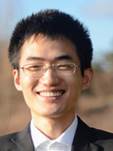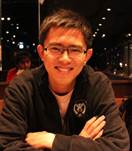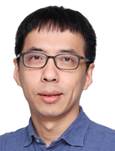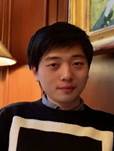Speakers:

Yang Yuan
PI (Outstanding Scientist in AI) of Shanghai Qi Zhi Institute,Assistant Professor of Tsinghua University
Yang Yuan finished his undergraduate study at Peking University in 2012. Afterwards, he received his PhD at Cornell University in 2018, advised by Professor Robert Kleinberg. During his PhD, he was a visiting student at MIT/Microsoft New England (2014-2015) and Princeton University (2016 Fall). Before joining Tsinghua, he spent one year at MIT Institute for Foundations of Data Science (MIFODS) as a postdoc researcher, advised by Professor Piotr Indyk and Professor Aleksander Madry. He works on AI+Healthcare, AI Interpretability and AI system.

Yang Yu
PI (Outstanding Scientist in AI) of Shanghai Qi Zhi Institute,Assistant Professor of Tsinghua University
Yang Yu got his Ph.D. from Stanford University. His current research interests focus on the interdisciplinary area between computer science and governance, including using algorithmic approach assisting governance and regulating the algorithmic-service industries. He also works on the economics of energy transition. His research on the marginal cost of wind power and the market power won the “2015 Dennis J. O'Brien USAEE/IAEE Best Student Paper Award” at the USAEE Conference. In the same year, his research on incompatibility between the current transmission congestion policy and wind power uncertainties won the “2015 Annual Best Student Paper Award” at the IAEE Conference. In 2016, Dr. Yu received the “Best Paper Award” from the U.S-China Green Energy Summit. In 2020, his research discussing manipulate electricity price by attacking the relative algorithm is awarded the Best Paper Award for big-data direction of IEEE PES Genera Meeting.

Yi Wu
PI (Outstanding Scientist in AI) of Shanghai Qi Zhi Institute,Assistant Professor of Tsinghua University
Yi Wu earned his PhD degree from UC Berkeley under the supervision of Prof. Stuart Russell in 2019 and worked in OpenAI before moving back to Tsinghua. His research focuses on improving the generalization ability of AI systems. He is broadly interested in a variety of topics in AI, including deep reinforcement learning, multi-agent systems and natural language understanding. His work, Value Iteration Network, won the best paper award at NIPS 2016.

Yu Yu
PI (Outstanding Scientist in Cryptography) of Shanghai Qi Zhi Institute,Professor of Shanghai Jiao Tong University
Yu Yu obtained his BSc from Fudan University in 2003, and then his PhD from Nanyang Technological University in 2006. He worked as a researcher at the ICT security lab at T-Systems Singapore from 2006 to 2008, and as a postdoctoral researcher at the UCL Crypto Group during 2008-2010. After returned to China, he was employed by East China Normal University (2011-2012) and Tsinghua University (2012-2014). His research focuses on cryptography, in particular, provable security, pseudorandomness, and post-quantum cryptography. He is now serving on the board of the IACR, the Steering Committee of ASIACRYPT, and the program committee of EUROCRYPT 2020 and 2021.

Yilei Chen
PI (Outstanding Scientist in Cryptography) of Shanghai Qi Zhi Institute,Assistant Professor of Tsinghua University
Before joining Tsinghua he was a researcher at VISA Research. In 2018 he got his Ph.D. from Boston University under the guidance of Professor Ran Canetti and Professor Leonid Reyzin. He attended college at Shanghai Jiao Tong University.Yilei's research interest is in cryptography, especially in the areas of pseudorandomness, lattice, number theory, and quantum computation. His main research contributions are (1) developping the lattice theory behind multilinear maps and program obfusctaion; (2) basing the Fiat-Shamir heuristic on established cryptographic assumptions; (3) proposing a candidate group with infeasible inversion.

Zhongxian Zhao
PI (Outstanding Scientist in Interdisciplinary Research) of Shanghai Qi Zhi Institute,Professor of Tongji University
Dr. Xianzhong Zhao is Professor of Structural Engineering and former Dean of College of Civil Engineering at Tongji University. Professor Zhao received his B.S. and Ph.D. from Tongji University in 1994 and 2000, respectively. Following, he took a position at Tongji University and also worked as a Research Associate at Engineering Design Center of Cambridge University Engineering Department (UK) from 2002 to 2004. Professor Zhao’s current research interests include the behavior of steel structures, seismic and collapse resistance analysis of complex structures, intelligent design and construction; further on, he has been establishing a multidiscipline platform and an international journal on smart building and infrastructure from design, manufacture, construction to maintenance via AI technology.
In past two decades, Professor Zhao carried out hundreds of experimental and corresponding analysis both for cutting-edge structural systems and landmark buildings, such as 597m Tianjin 117 Mansion, 632m Shanghai Tower (Curtain wall), Laoshan Velodrome for the Beijing Olympic, Kuwait Central Bank Tower etc.

Zhixuan Fang
PI (Outstanding Scientist in Cryptography) of Shanghai Qi Zhi Institute,Assistant Professor of Tsinghua University
Zhixuan Fang received his Ph.D. degree in computer science from Tsinghua University, China, in 2018, and his B.S. degree in physics from Peking University, China, in 2013. He mainly focuses on the design and analysis of multi-agent systems and networked systems.

Ran Duan
Associate Professor of Tsinghua University
Ran Duan received his B.S. degree in Computer Science at Tsinghua University in 2006, and his M.S. and Ph.D. degrees in Theoretical Computer Science at University of Michigan, Ann Arbor (under the instruction of Prof. Seth Pettie). Then he held a postdoctoral researcher position in Max-Planck-Institut für Informatik in Germany until 2014, supported by Alexander von Humboldt fellowship. In Aug 2014, he becomes a faculty member in IIIS. His research interest focuses on graph algorithms, data structures, and computational theory.

Yuhao Wang
PI (Outstanding Scientist in AI) of Shanghai Qi Zhi Institute,Assistant Professor of Tsinghua University
Before joining Tsinghua, Yuhao was a Postdoctoral Research Associate at the Statistical Laboratory, University of Cambridge, advised by Dr. Rajen Shah. Prior to that, Yuhao did his Ph.D. in the Department of Electrical Engineering and Computer Sciences, Massachusetts Institute of Technology. Yuhao is primarily interested in causal inference and high-dimensional statistics.

Feng Zhang
PI (Outstanding Scientist in Meteorology) of Shanghai Qi Zhi Institute,Professor of Fudan University
Prof Feng Zhang’ interests are atmospheric radiation and satellite meteorology, application of artificial intelligence in atmospheric science, and parameterization of numerical model physical process. He is now a member of the International Radiation Commission. He has been awarded honorary titles, such as Humboldt Research Fellowship, Japan Society for the Promotion of Science (JSPS) fellowship for overseas Researchers, China Youth Science and Technology Innovation Award, Tsinghua University Inspur Group computing geoscience young talent award, Jiangsu Province "333 high-level talent training project" young and middle-aged science and technology leader, Jiangsu Province University "Blue Project" young academic leader, Huo Yingdong foundation young teacher foundation and other honorary titles. He has presided over national-level projects and served as the leader of the national key R & D projects of the Ministry of science and technology. So far, he has published more than 40 SCI (E) papers as the first author (including corresponding authors). He has established four-stream adding radiative transfer method,l Variational Iteration Method for Infrared Radiative Transfer, and perturbation method for radiative transfer in vertically internally inhomogeneous mediums. The relevant research results have been applied in the climate model of the National Climate Center, CCCma’s Climate model and the Earth System Model of Tsinghua University.

Yang Gao
PI (Outstanding Scientist in AI) of Shanghai Qi Zhi Institute,Assistant Professor of Tsinghua University
Yang Gao got his Ph.D. degree from UC Berkeley, advised by Prof. Trevor Darrell. He also spent a year at Berkeley for his postdoc, working with Pieter Abbeel. He is mainly interested in computer vision and robotic learning. Before that, he graduated from the computer science department at Tsinghua University, where he worked with Prof. Jun Zhu on Bayesian inference. He has interned in Google Research on natural language processing from 2011 to 2012, with Dr. Edward Y. Chang and Dr. Fangtao Li and in Waymo autonomous driving team during the summer of 2016. He also worked on autonomous driving problem at Intel research during the summer of 2018, with Dr. Vladlen Koltun.

Mingyu Gao
PI (Outstanding Scientist of High Performance Computing) of Shanghai Qi Zhi Institute,Assistant professor of Tsinghua University
Mingyu Gao received his PhD and Master of Science degrees in Electrical Engineering at Stanford University, and Bachelor of Science degree in Microelectronics at Tsinghua University. Currently he leads the Innovative Data-centric Efficient Architecture Lab (IDEAL). His research interests lie in the fields of computer architecture and systems, including efficient memory architectures, scalable data processing, and hardware system security, with a special emphasis on data-intensive applications like artificial intelligence and big data analytics. He has published in top-tier computer architecture conferences including ISCA, ASPLOS, HPCA, and PACT, and been granted several patents. He won the IEEE Micro Top Picks paper award in 2016, European HiPEAC paper awards for three times, and was the recipient of Forbes China 30 Under 30 in 2019.

Hang Zhao
PI (Outstanding Scientist in AI) of Shanghai Qi Zhi Institute,Assistant Professor of Tsinghua University
Dr. Hang Zhao is broadly interested in computer vision, multimodal machine learning, and robotics applications like autonomous driving. Prior to Tsinghua, he got his Ph.D. degree at MIT CSAIL, then he worked as a research scientist at Waymo, formerly known as Google's self-driving project. Dr. Hang Zhao's works have been widely covered by mainstream tech media such as BBC, NBC, MIT Technology Review, etc. His work won 2015 ICCP Best Paper runner-up. He is also a recipient of 2020 Forbes China U30.
